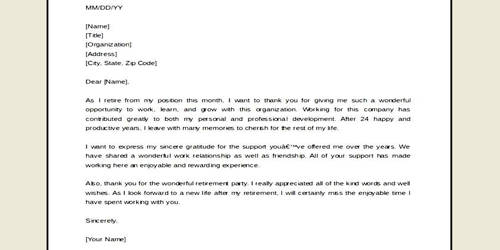After I had rested from the dangers of my third voyage, my passion for the trade and my love of novelty soon again prevailed. I, therefore, settled my affairs and provided a stock of goods fit for the traffic I designed to engage in. I took the route of Persia, traveled over several provinces, and then arrived at a port, where I embarked. On putting out to sea, we were overtaken by such a sudden gust of wind as obliged the captain to lower his yards and take all other necessary precautions to prevent the danger that threatened us. But all was in vain; our endeavors had no effect; the sails were split into a thousand pieces, and the ship was stranded; several of the merchants and seamen were drowned, and the cargo was lost.
I had a good fortune, with several of the merchants and mariners, to get upon some planks, and we were carried by the current to an island which lay before us. There we found fruit and spring water, which preserved our lives. We stayed all night near the place where we had been cast ashore.
The next morning, as soon as the sun was up, we explored the island and saw some houses, which we approached. As soon as we drew near, we were encompassed by a great number of negroes, who seized us, shared us among them, and carried us to their respective habitations I and five of my comrades were carried to one place; here they made us sit down, and gave us a certain herb, which they made signs to us to eat. My comrades not taking notice that the blacks ate none of it themselves, thought only of satisfying their hunger and ate with greediness. But I, suspecting some trick, would not so much as taste it, which happened well for me; for in a little time after I perceived my companions had lost their senses, and that when they spoke to me they knew not what they said.
The Negroes fed us afterward with rice, prepared with oil of cocoanuts; and my comrades, who had lost their reason, ate of it greedily. I also partook of it, but very sparingly. They gave us that herb at first on purpose to deprive us of our senses, that we might not be aware of the sad destiny prepared for us; and they supplied us with rice to fatten us; for, being cannibals, their design was to eat us as soon as we grew fat. This accordingly happened, for they devoured my comrades, who were not sensible of their condition; but my senses being entire, you may easily guess that instead of growing fat, as the rest did, I grew leaner every day. The fear of death under which I labored turned all my food into poison. I fell into a languishing distemper, which proved my safety; for the Negroes, having killed and eaten my companions, seeing me be withered, lean and sick, deferred my death.
Meanwhile, I had much liberty, so that scarcely any notice was taken of what I did, and this gave me an opportunity one day to get at a distance from the houses and to make my escape. An old man who saw me, and suspected my design, called to me as loud as he could to return; but instead of obeying him I redoubled my speed, and quickly got out of sight. At that time there was none but the old man about the houses, the rest being abroad, and not to return till night, which was usual with them. Therefore, being sure that they could not arrive in time to pursue me, I went on till night, when I stopped to rest a little, and to eat some of the provisions I had secured; but I speedily set forward again, and traveled seven days, avoiding those places which seemed to be inhabited, and lived for the most part upon cocoanuts, which served me both for meat and drink.
On the eighth day, I came near the sea and saw some white people like myself gathering pepper, of which there was great plenty in that place. This I took to be a good omen and went to them without any scruple.
The people who gathered pepper came to meet me as soon as they saw me, and asked me in Arabic who I was, and whence I came. I was overjoyed to hear them speak in my own language, and satisfied their curiosity by giving them an account of my shipwreck, and how I fell into the hands of the Negroes. “Those negroes,” replied they, “eat men; and by what miracle did you escape their cruelty?” I related to them the circumstances I have just mentioned, at which they were wonderfully surprised.
I stayed with them till they had gathered their quantity of pepper and then sailed with them to the island from whence they had come. They presented me to their king, who was a good prince. He had the patience to hear the relation of my adventures, which surprised him, and he afterward gave me clothes and commanded care to be taken of me.
The island was very well peopled, plentiful in everything, and the capital a place of great trade. This agreeable retreat was very comfortable to me after my misfortunes, and the kindness of this generous prince completed my satisfaction. In a word, there was not a person more in favor with him than myself, and consequently, every man in court and city sought to oblige me so that in a very little time I was looked upon rather as a native than a stranger.
I observed one thing, which to me appeared very extraordinary. All the people, the king himself not excepted, rode their horses without bridle or stirrups. I went one day to a workman and gave him a model for making the stock of a saddle. When that was done, I covered it myself with velvet and leather and embroidered it with gold. I afterward went to a smith, who made me a bit, according to the pattern I showed him, and also some stirrups. When I had all the things completed, I presented them to the king and put them upon one of his horses. His majesty mounted immediately and was so pleased with them that he testified his satisfaction with large presents.
I made several others for the ministers and principal officers of his household, which gained me a great reputation and regard.
As I paid my court very constantly to the king, he said to me one day, “Sindbad, I love thee, I have one thing to demand of thee, which thou must grant. I have mind thou should marry, that so thou mayst stay in my dominions, and think no more of thy own country.” I durst not resist the prince’s will and he gave me one of the ladies of his court, noble, beautiful, and rich. The ceremonies of marriage being over, I went and dwelt with my wife and for some time we lived together in perfect harmony. I was not, however, satisfied with my banishment; therefore designed to make my escape the first opportunity, and to return to Bagdad, which my present settlement, how advantageous soever, could not make me forget.
At this time the wife of one of my neighbors, with whom I had contracted a very strict friendship, fell sick and died. I went to see and comfort him in his affliction, and, finding him absorbed in sorrow, I said to him as soon as I saw him, “God preserve you and grant you a long life.” “Alas!” replied he, “how do you think I should obtain the favor you wish me? I have not above an hour to live, for I must be buried this day with my wife. This is a law on this island. The living husband is interred with the dead wife, and the living wife with the dead husband.”
While he was giving an account of this barbarous custom, the very relation of which chilled my blood, his kindred, friends, and neighbors came to assist at the funeral. They dressed the corpse of the woman in her richest apparel and all her jewels as if it had been her wedding day; then they placed her on an open bier and began their march to the place of burial. The husband walked first, next to the dead body. They proceeded to a high mountain, and when they had reached the place of their destination, they took up a large stone which formed the mouth of a deep pit and let down the body with all its apparel and jewels. Then the husband, embracing his kindred and friends, suffered himself to be placed on another bier without resistance, with a pot of water and seven small loaves and was let down in the same manner. The ceremony is over, the mouth of the pit was again covered with the stone, and the company returned.
I mention this ceremony the more particularly because I was in a few weeks’ time to be the principal actor on a similar occasion. Alas! My own wife fell sick and died. I made every remonstrance I could to the king not to expose me, a foreigner, to this inhuman law. I appealed in vain. The king and all his court, with the most considerable persons in the city, sought to soften my sorrow by honoring the funeral ceremony with their presence; and, at the termination of the ceremony, I was lowered into the pit, with a vessel full of water and seven loaves. As I approached the bottom, I discovered, by the aid of the little light that came from above, the nature of this subterranean place. It seemed an endless cavern and might be about fifty fathoms deep. I lived for some time there upon my bread and water, when one day, just as it was on the point of exhaustion, I heard something tread and breathing or panting as it moved. I followed the sound. The animal seemed to stop sometimes, but always fled and breathed hard as I approached. I pursued it for a considerable time, till at last, I perceived a light, resembling a star. I went on, sometimes lost sight of it, but always found it again, and at last discovered that it came through a hole in the rock, which I got through, and found myself upon the seashore, at which I felt exceeding joy. I prostrated myself on the shore to thank God for this mercy, and shortly afterward I perceived a ship making for the place where I was. I made a sign with the linen of my turban and called to the crew as loud as I could. They heard me and sent a boat to bring me on board. It was fortunate for me that these people did not inspect the place where they found me, but without hesitation took me on board.
We passed by several islands, and, among others, that called the Isle of Bells, about ten day’s sail from Serendib with a regular wind, and six from that of Kela, where we landed. Lead mines are found on the island; also Indian canes and excellent camphire.
The king of the Isle of Kela is very rich and powerful, and the Isle of Bells, which is about two days’ journey in extent, is also subject to him.
The inhabitants are so barbarous that they still eat human flesh. After we had finished our traffic on that island we put to sea again, and touched at several other ports; at last, I arrived happily at Bagdad. Out of gratitude to God for His mercies, I contributed liberally toward the support of several mosques and the subsistence of the poor and enjoyed myself with friends in festivities and amusements.
Here Sindbad made a new presentation of one hundred sequins to Sindbad, whom he requested to return with the rest next day at the same hour, to dine with him and hear the story of his fifth voyage.
















